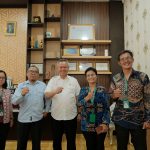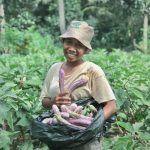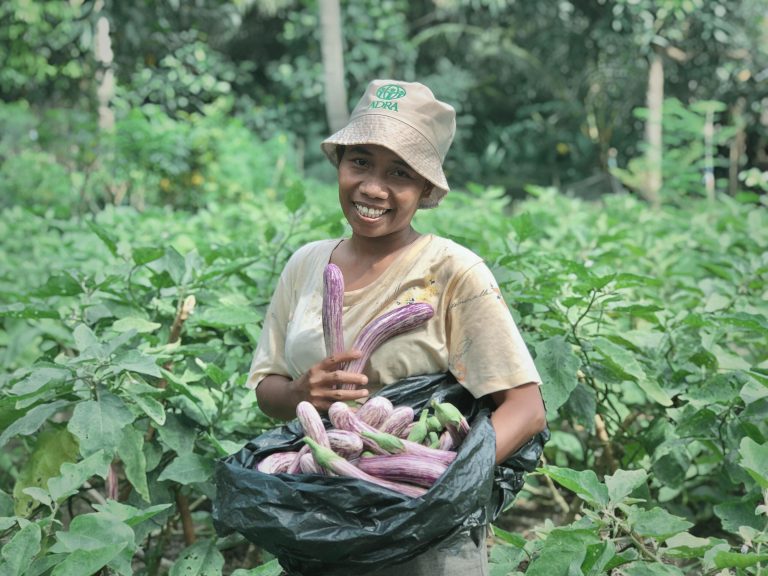Hasna (53 years old) is a mother of five children (four boys and one girl). She spends her days managing household responsibilities while also working as a farmer. Among the crops she cultivates, corn has become her primary focus and the main source of income for her family. However, for years, her corn yields have consistently fallen short of expectations. This is what motivated Hasna to actively participate in the REAF II program by ADRA Indonesia.
Although she has been cultivating corn for quite a long time, Hasna admits that the harvest has never been impressive.
“I’ve been farming corn for years, but my yields have always been the same. The highest I’ve ever harvested was around 3 tons—and that was a long time ago, maybe in 2021. So when I heard ADRA was returning to Omu Village and planning to run a farmer field school, I immediately signed up. I heard about the training in September 2023, right when I was about to plant corn again,” she shared.
After participating in the field school, Hasna began applying several Good Agricultural Practices (GAP) on her farmland. These included using hybrid seeds (F1) instead of saved seeds (F2), despite the higher cost; planting with proper spacing (30×70 cm) instead of random sowing; avoiding the use of pesticides; and focusing on regular weeding twice during the growing season to maintain field cleanliness.
Due to limited financial resources and the long distance to her plot, Hasna was only able to fertilize once during the season—around 30–35 days after planting—using 200 kg of Phonska and 200 kg of urea.
Although the improvements haven’t yet reached ideal results, her harvests have gradually shown positive progress. On April 23, 2025, Hasna achieved her highest corn yield to date: 4 tons from just 12 kg of seed, a significant improvement from previous seasons. Beyond the yield increase, Hasna expressed heartfelt gratitude to ADRA Indonesia, as the knowledge she gained from the training has had a meaningful impact on her family’s food security.
She recounted:
“After the earthquake, which was soon followed by a flash flood, no one dared to return to the fields—especially since ours are in the mountains. Thankfully, there were many food aid distributions—noodles, rice, eggs, sardines. We relied heavily on those for a while. It took almost a year before we tried farming again, but our harvests were still poor. Alhamdulillah, things are slowly improving, especially after applying what I learned from the farmer field school. That’s why I’m really grateful.”
Hasna is well aware that her current yields are still far below the national average. Motivated to continue improving, she plans to implement even more GAP techniques in her next planting season—such as applying organic compost or agricultural lime before planting—to improve soil health and increase productivity.
She closed by expressing her appreciation and hopes for the future:
“Thank you to ADRA Indonesia. I hope ADRA continues to support Omu Village, so that more farmers can benefit from this program.”






